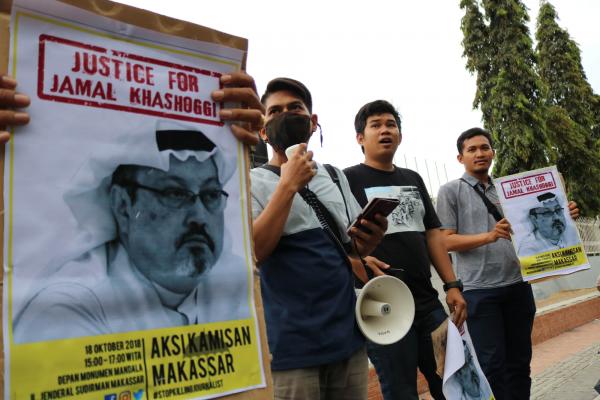DESPITE THE manifold horrors inflicted by the Saudi regime over the years, it was not until the grisly murder of a well-connected exiled journalist in early October that public attention has finally been given to the monarchy’s savagery.
U.S.-educated Jamal Khashoggi was perhaps Saudi Arabia’s most prominent journalist, having served as editor-in-chief for the Saudi Al-Watan daily newspaper and as general manager and editor-in-chief of Al-Arab News Channel. A moderately conservative Islamist who became increasingly liberal in his later years, Khashoggi’s writings emphasized the need for freedom of expression in the Arab world. Such rights, if exercised in his home country, could threaten the hold on power by the corrupt U.S.-backed Saudi Crown Prince Mohammad bin Salman, who had paradoxically been lauded in the U.S. media as a reformer.
In recent decades, the Saudi regime has executed hundreds of their domestic opponents. What made Khashoggi’s murder different is that, as a Washington Post columnist living in the D.C. area, he was well-known and respected among leading journalists, members of Congress, influential pundits, and others. Khashoggi’s prominence, along with the sensitivity regarding the protected status of journalists and the brutal nature of his killing, resulted in his death receiving the widespread attention denied to so many of the regime’s other victims.
It is worth noting that the incident that led to Khashoggi’s initial banning by the Saudis was not his criticisms of Saudi leadership (which came later), but his critique in 2016 of President-elect Trump’s Middle East policies. The Saudi regime immediately prohibited Khashoggi from writing in newspapers, making appearances on broadcasts, and attending conferences, resulting in his exile.
Read the Full Article

